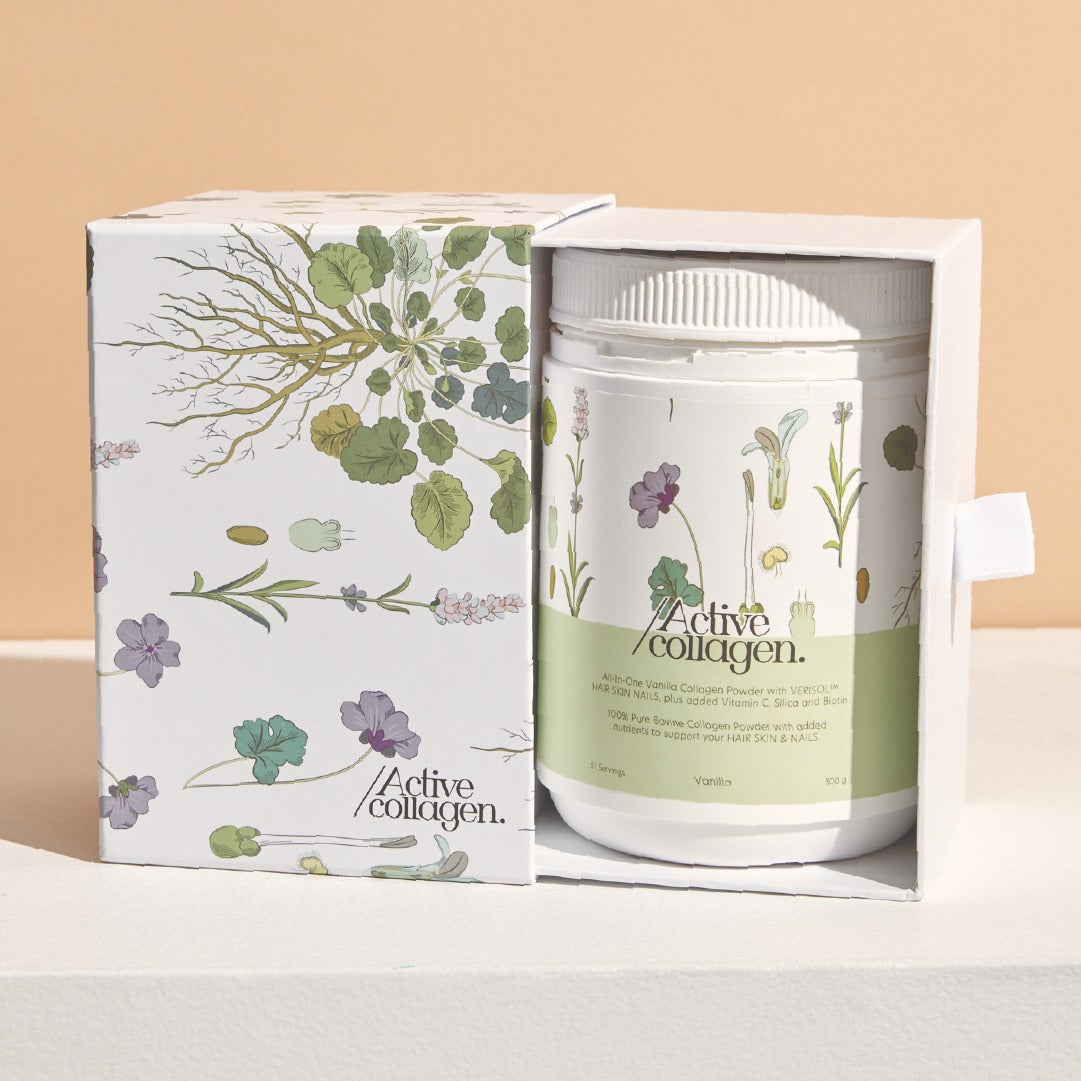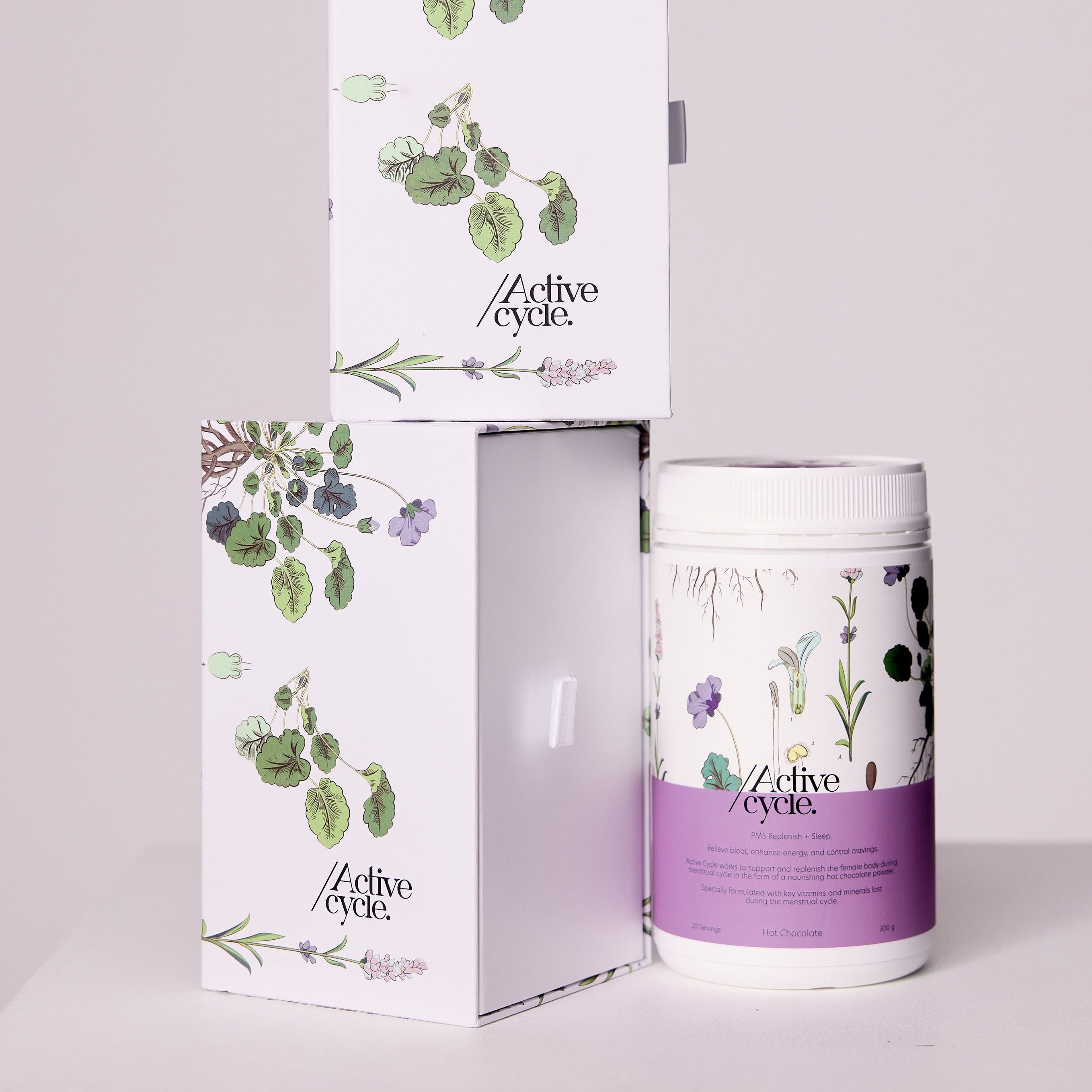Collagen supplements are more often than not targeted at a female audience. But that’s not to say that collagen isn’t just as important for males. Some of the benefits that collagen offers women actually crossover with men, however usually for slightly different reasons.
The effects of collagen on skin health are the same for both sexes, offering increased skin elasticity, hydration and structure. That goes for bone health too. Although far less common than women, let’s not forget that men can also experience bone pathologies like osteoporosis as well.
Of course, women could probably resonate with the following reasons too. Though, for our male audience, let’s break down some more masculine reasons to incorporate collagen into your everyday routine.
Joint Health
It is common for men to experience joint injuries due to regularly participating in recreational sports like rugby or soccer that involve a lot of stop-start movements. Especially within the knee, ankle and hip joints. And we all know the inconvenience joint pain brings.
Collagen is the bodies glue protein that helps hold everything together, from our skin to our bones to our ligaments and cartilage. It provides a great deal of structure that helps sustain strength in those tissues, probably due to the actual structure of collagen itself. To put it visually, collagen appears in a sort-of rope-like configuration where the different protein chains wrap around one another. And like a rope, collagen is quite difficult to break apart. Unless under the circumstance of continual damage due to impact movement like sport.
When there is continual joint impact, this can weaken and deteriorate the cartilage surrounding the joint giving rise to pain. One study found that after 24 weeks of hydrolysed collagen supplementation, those with athlete-related join pain showed improvements in pain levels. This suggests that collagen supplementation may be beneficial for pain that negatively impacts performance in both men and women due to collagen deterioration within the joint.
Building Muscle
Talking about recreationally active men, you don’t have to be an athlete to want to preserve your muscle health. As we age, for both males and females, it can become harder to sustain and build muscle tissue due to age-related changes in muscle metabolism – which often leads to progressive loss and strength of muscle known as sarcopenia. So, it’s important to prioritise our muscle health as we age just as it is important to prioritise bone health in the same way.
As we know, collagen is a protein. And proteins are needed for the synthesis of muscle tissue. Without adequate protein intakes this can also impact our body’s ability to synthesise muscle as we age.
One serving of Active Collagen All-In-One collagen peptides provides you with 19 different amino acids – the smaller protein molecules or building blocks needed to create larger proteins. This form of hydrolysed collagen is easily available for the body to use for muscle synthesis, which makes it a super easy way to reach or increase your protein requirements each day.
Faster Recovery
Along with providing the body with enough protein to build muscles, muscles also need a stimulus in order to stimulate growth. This stimulus being exercise, or resistant strength training in particular.
When muscles are pulled and stretched in the act of heavy lifting or continuous impaction like running this causes miniscule tears in the muscle tissue. However, the actual gained muscle strength comes from the repair and recovery of these tissues. And just like in joint cartilage tissue, muscle repair includes the synthesis of collagen. We’ve all been subject to the old protein shake after a workout. But how does collagen add up?
A study examining the use of collagen peptide supplementation pre and post strength training showed that muscle soreness and recovery was improved in recreationally active men after 9 days. Another study found that after a bout of damaging exercise, males consuming 15g/day of collagen peptides post exercise showed enhanced musculoskeletal recovery of muscles after 24 hours. This could be due to the bioavailability of collagen peptides in the body for use in muscle repair.
Male Fertility
Unlike women, males don’t seem to get as much attention when it comes to their fertility. Infertility is in fact as much as a problem for males as it is for women. One factor that impacts both men and women respectfully is oxidative stress, which can have an impact on sperm motility and health. Oxidative stress is an imbalance between the beneficial antioxidants and damaging reactive oxygen species (ROS) within the body, which can disturb cell survival and cause damage. This stress is due to factors such as smoking, poor diet and overconsumption of alcohol.
However, there is one antioxidant that is able to scavenge and neutralize ROS activity – Glutathione. Glutathione is made of three amino acids, two of which are present in hydrolysed collagen – glycine and glutamine. A deficiency of this powerful antioxidant can lead to sperm instability which in turn may reduce chances of implantation during conception.
Although you can obtain glycine and glutamine from other protein rich foods, it could be beneficial if you’re trying to conceive to consider taking a hydrolysed collagen supplement such as our Active Collagen All-In-One. This will ensure your diet is not missing out on these vital amino acids that are needed to produce glutathione. Your sperm (and partner) will thank us later!
Clark, K. L., Sebastianelli, W., Flechsenhar, K. R., Aukermann, D. F., Meza, F., Millard, R. L., Deitch, J. R., Sherbondy, P. S., & Albert, A. (2008). 24-Week study on the use of collagen hydrolysate as a dietary supplement in athletes with activity-related joint pain. Current medical research and opinion, 24(5), 1485–1496. https://doi.org/10.1185/030079908x291967
Distefano, G., & Goodpaster, B. H. (2018). Effects of Exercise and Aging on Skeletal Muscle. Cold Spring Harbor perspectives in medicine, 8(3), a029785. https://doi.org/10.1101/cshperspect.a029785
Kirmse, M., Oertzen-Hagemann, V., de Marées, M., Bloch, W., & Platen, P. (2019). Prolonged Collagen Peptide Supplementation and Resistance Exercise Training Affects Body Composition in Recreationally Active Men. Nutrients, 11(5), 1154. https://doi.org/10.3390/nu11051154
Clifford, T., Ventress, M., Allerton, D. M., Stansfield, S., Tang, J. C. Y., Fraser, W. D., Vanhoecke, B., Prawitt, J., & Stevenson, E. (2019). The effects of collagen peptides on muscle damage, inflammation and bone turnover following exercise: a randomized, controlled trial. Amino acids, 51(4), 691–704. https://doi.org/10.1007/s00726-019-02706-5
Prowting, J. L., Bemben, D., Black, C. D., Day, E. A., & Campbell, J. A. (2021). Effects of Collagen Peptides on Recovery Following Eccentric Exercise in Resistance-Trained Males-A Pilot Study. International journal of sport nutrition and exercise metabolism, 31(1), 32–39. https://doi.org/10.1123/ijsnem.2020-0149
National Cancer Institute. (N.D.). Glutathione. NCI Drug Dictionary. https://www.cancer.gov/publications/dictionaries/cancer-drug/def/glutathione#:~:text=A%20tripeptide%20comprised%20of%20three,scavenger%20and%20a%20detoxifying%20agent.
Adeoye, O., Olawumi, J., Opeyemi, A., & Christiania, O. (2018). Review on the role of glutathione on oxidative stress and infertility. JBRA assisted reproduction, 22(1), 61–66. https://doi.org/10.5935/1518-0557.20180003




